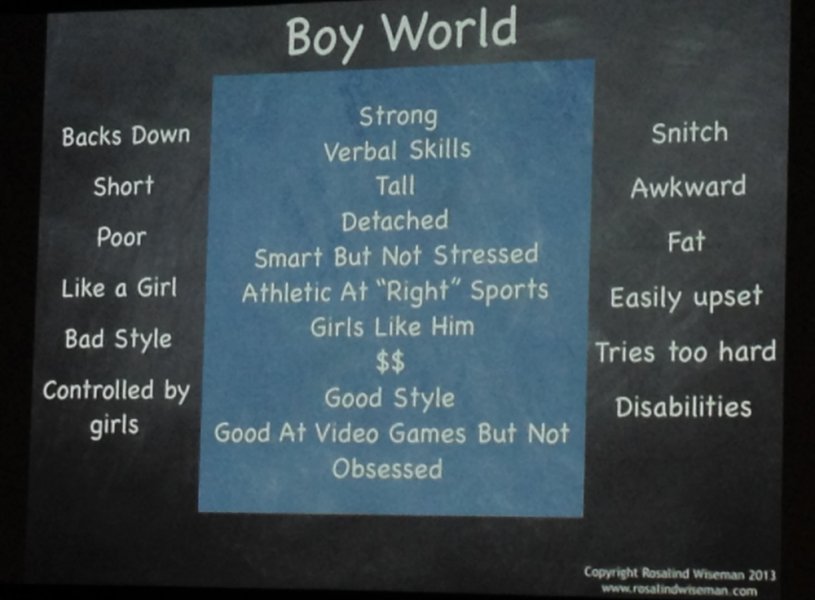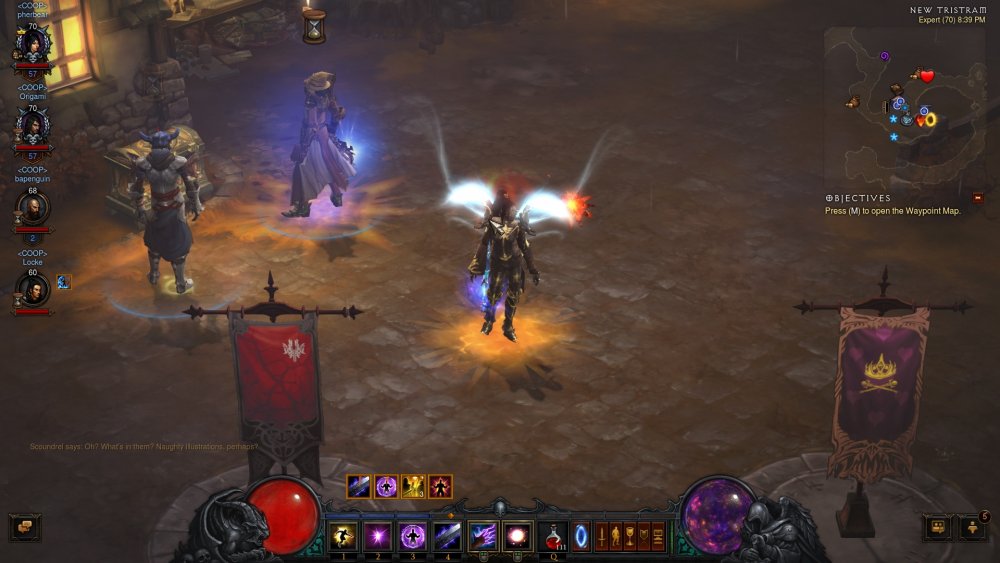
The “box” according to the video is what the male population has to do to achieve high social status. In the case of video gaming and online interaction, the boys interviewed by Rosalind claimed the best way to attain social status are: strong verbal skills (able to put someone down fast and often be funny), being ultimately detached, and good at video games but not obsessed (not trying too hard). In the form of competition, gaming opens up the box to create a ranking system much like the playground pecking order many experience in high school or career ladder at work later in life. Combining co-op and competition sounds great in theory but alternately opens a whole can of worms that has players stop wanting to play online at all, even with people they know.
At this point, you may be thinking one of two things. Either “gee, are there any good co-op experiences out there that aren’t Dark Souls” or “I think you’re going a bit far with all this.” To the latter, we say: no. Psychological and sociological studies are just beginning to dive into the realm of video games, which is good. For many, video games are nothing but the cause of so many issues we see in today’s society. Those of us who play video games know this isn’t true but we often have a hard time expressing why.
The why is now laid out for us: games are a reflection of the norms and behaviors already present in our society, they are not the source of these things. Think of the last time you played a game online with a group of random people and one of them made a mistake. Did you forgive them and just figure “hey, everybody makes mistakes?” Or did you get frustrated by them? Did someone else in chat make a comment about what the person did and rather than stick up for them, you laughed and went along with it? Or maybe just stayed silent? This isn't behavior unique to gaming at all. It takes place in school, at work, and our everyday lives.
If you were in the “are there any good co-op experiences other than Dark Souls” camp, the answer to you is: absolutely yes, though they may not be as incentivized as that particular example. Any game that features a full co-op campaign with shared progression, such as Diablo 3, Gears of War’s campaign mode, Borderlands 2 and more, are the types of co-op experiences that started this very site. They harken back to the days when two friends would sit on a couch together and work together to beat a game. Communication is key and if you want to make it through, you support your partner(s). We even put that idea into our definition of co-op gaming.

The thing to watch out for are those games that cover up their competitive spirit with a layer of co-op. As mentioned earlier, the overall design philosophy of cooperative modes in the past few years seems to have stemmed from taking elements of competitive multiplayer and meshing them with cooperative elements. For a while, it seemed like every game had a “horde” mode, and people started getting tired of it. What distinguished Gears of War’s Horde mode from Halo’s Firefight mode, aside from different player/enemy skins?
Trends in gaming change constantly and perhaps the one benefit of those co-op-etition modes is they raised the overall awareness of co-op as a whole. People wanted more co-op games and, without really being able to vocalize it, they wanted more “incentivized” co-op. They didn’t want to hop into a game, be called 50 different slurs, and then walk away with a hollow victory. So, the trend is starting to turn; thanks to changes in the industry and a rise in independent developers with the creative freedom to explore different ideas, and thanks to us.
It's actually important to note that we are an active part of this whole formula. We can still make some of these games with the negative aspects of co-op fun if we recognize the behavior in ourselves and others, and make an effort to change the norm. Rather than putting someone down in a co-op session for not pulling their weight, we can encourage them. Instead of always being “player one,” give someone else the controller and we can be “the assistant.” We can start asking developers for games that have incentivized co-op, and encourage them to remove any kind of competitive aspects from co-op play. Maybe one day, we can have online gaming sessions that really bring gamers together in a way we haven't seen since couch co-op was the only option.
Ultimately, it's up to us to stop the hate and really change these trends. As Ashly states:
I think we all have some basic understanding that sexism and racism, people that exhibit those traits don't just fall from the sky like Titans and spread horribleness everywhere…